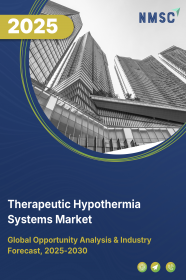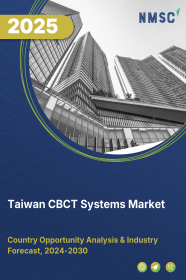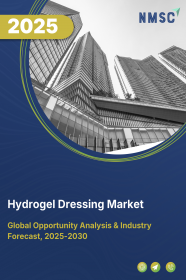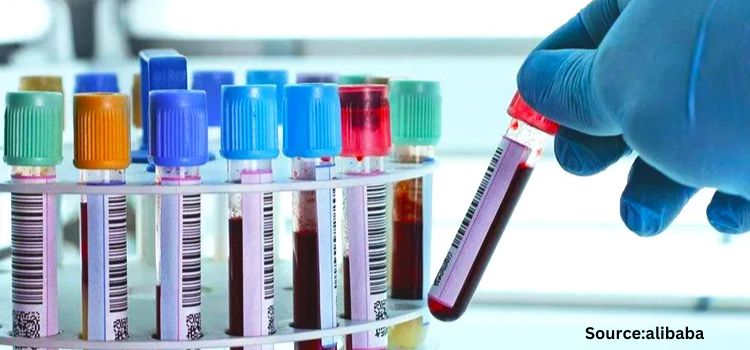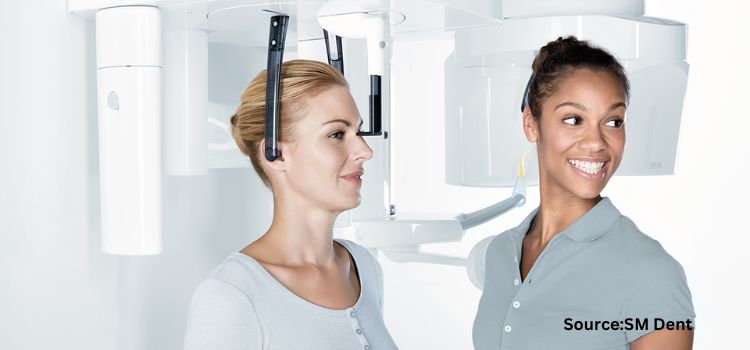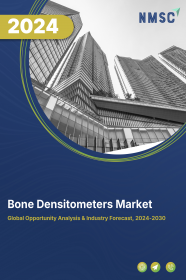
Bone Densitometers Market by Technology (Axial and Peripheral), by Application (Osteoporosis & Osteopenia Diagnosis, Cystic Fibrosis Diagnosis, Body Composition Measurement, Rheumatoid Arthritis Diagnosis, and Others), and by End User (Hospitals & Specialty Clinics, Diagnostics & Imaging Centers, and Others) - Global Opportunity Analysis and Industry Forecast, 2023–2030
US Tariff Impact on Bone Densitometers Market
Trump Tariffs Are Reshaping Global Business
Market Definition
The Bone Densitometers Market size was valued at USD 304.28 million in 2022, and is predicted to reach USD 426.14 million by 2030, with a CAGR of 4.3% from 2023 to 2030.
Bone densitometer is also known as dual-energy x-ray absorptiometry, DEXA, or DXA. DEXA utilizes a very small amount of dose of ionizing radiation for the development of images of the lower or lumbar spine and hips to measure bone loss. Bone densitometry is a type of test that quickly and accurately measures the density of the bones. Bone densitometers are used to detect the bone's density, minerals, and risk of fractures in case of osteopenia. These devices are commonly used to diagnose osteoporosis and assess an individual's risk for developing osteoporotic fractures.
Market Dynamics and Trends
The demand for bone densitometers is increasing due to the rise in osteoporosis cases, the incidence of road accidents, and the prevalence of osteoarthritis and vitamin deficiencies due to an unhealthy diet. Also, the growing number of cases of menopausal in women leads to joint pain as the low level of estrogen hormone that occurs at the time of menopause results in significant bone loss. It affects knees, elbows, neck, shoulders, and hands. This, in turn, leads to rise in demand for bone densitometers and further drives the growth of the market.
Also, the rise in cancer instances fuels the market's expansion as cancer-related medications affect bone cells negatively, thus creating a need for bone densitometers, which offer quick and precise measurements of bone density. Furthermore, the growing demand for total scan DXA methods by surgeons to diagnose diseases is expected to further propel the growth of the bone densitometers market.
However, the high cost of bone densitometers equipment is expected to restrain the growth of the market during the forecast period. On the contrary, various efforts taken by prominent companies to improve the R&D capabilities and maintain high medical standards by making innovative products such as Lunar iDXA, Prodigy, Aria, and Achilles EXP II are expected to create ample opportunities for the DXA market in the coming years.
Market Segmentations and Scope of the Study
The global bone densitometers market is segmented on the basis of technology, application, end user, and geography. On the basis of technology, the market is categorized into axial and peripheral. The axial segment is further divided into dual energy x-ray absorptiometry and quantitative computed tomography. The peripheral segment is sub-segmented into dual energy x-ray absorptiometry, radiographic absorptiometry, quantitative ultrasound, peripheral quantitative computed tomography, and single energy x-ray absorptiometry. On the basis of application, the market is segmented into osteoporosis & osteopenia diagnosis, cystic fibrosis diagnosis, body composition measurement, rheumatoid arthritis diagnosis, and others. On the basis of end user, the market is further classified into hospitals & specialty clinics, diagnostics & imaging centre, and others. Geographic breakdown and analysis of each of the aforesaid segments includes regions such as North America, Europe, Asia-Pacific, and RoW.
Geographical analysis
North America holds the dominant share of the bone densitometers market at present, and is expected to continue its dominance during the forecast period. This is attributed to the factors such as rise in cases of diagnosis and treatment of osteoporosis owing to low calcium intake. For instance, according to National Institutes of Health (NIH), an estimated 10 million people aged 50 years and above have osteoporosis. Most of them are women but about two million are men.
Also, the new bone densitometer products, including integrated digital detectors and computer-assisted & ultrasonic densitometers such as Horizon DXA System that provide high comfort, ease in operation, and reduced measuring time, are expected to propel the market growth in this region. In April 2022, Newman Regional Health expanded its health and wellness services for men and women with the help of the Horizon DXA bone densitometry system. The system is used for the treatment of osteoporosis by Hologic, Inc., which is a medical tech firm working in empowering women with a great health in the United States.
On the other hand, Asia-pacific is expected to show a steady rise in the market, due to the high alcohol consumption rate and the rising issue of vitamin D deficiency. These factors lead to a loss in bone density. Furthermore, it may lead to fractures and osteoporosis. For instance, nearly 76% of Indians suffer from Vitamin D deficiency and insufficiency, according to a study published in May 2020 that included 4,624 subjects at 229 sites across 81 cities in India.
Also, the rapidly growing number of aging populations increases the demand for bone densitometers as osteoporosis, a condition that weakens bones and makes them brittle, is more prevalent among older adults. With age, people’s bones get lesser dense and lose strength, which makes them more susceptible to fractures and other injuries, which in turn drives the growth of the market. For instance, in 2020, the aging population (65 years old and above) was 36.19 million, constituting 28.8% of the total population, which is also about 1 in every 4 citizens in Japan.
Competitive Landscape
Various market players operating in the global bone densitometers market include Beammed, Ltd., Demetech Ab, DMS Imaging, Ecolight Medical, GE Healthcare, Hologic, Inc., Medlink, Medonica Co Ltd., Osteometer Meditech, Inc., and Aurora Spine Corporation. These market players are adopting various strategies such as product innovations and contract extension to maintain their dominance in the global bone densitometers market.
For instances, in March 2022, Aurora Spine Corporation implanted the Bone Density Matched DEXA-C Cervical Interbody Fusion Device for the first time. Aurora Spine's DEXA-C implant is a new age of individualized spine surgery. This personalization reduces implant subsidence and speeds up fusion even in healthy people. It will make spine surgery more accessible to older individuals.
In addition, in July 2021, DMS Imaging announced to extend its white-label manufacturing contract for the FUJIFILM Healthcare Group. After a first distribution agreement earlier signed for its range of bone densitometry for Europe, it had been extended to the Middle East and Africa zones.
Key Benefits
-
The bone densitometers market report provides the quantitative analysis of the current market and estimations from 2023 to 2030. This analysis assists in identifying the prevailing market opportunities to capitalize on.
-
The study comprises of a comprehensive analysis of the bone densitometers market trends, including the current and future trends for depicting the prevalent investment pockets in the market.
-
The information related to key drivers, restraints, and opportunities and their impact on the bone densitometers market is provided in the report.
-
The competitive analysis of the market players along with their market share in the bone densitometers market is mentioned.
-
The SWOT analysis and Porter’s Five Forces model are elaborated in the study.
-
The value chain analysis in the market study provides a clear picture of the stakeholders’ roles.
Key Market Segments
By Technology
-
Axial
-
Dual Energy X-Ray Absorptiometry
-
Quantitative Computed Tomography
-
-
Peripheral
-
Dual Energy X-Ray Absorptiometry
-
Radiographic Absorptiometry
-
Quantitative Ultrasound
-
Peripheral Quantitative Computed Tomography
-
Single Energy X-Ray Absorptiometry
-
By Application
-
Osteoporosis & Osteopenia Diagnosis
-
Cystic Fibrosis Diagnosis
-
Body Composition Measurement
-
Rheumatoid Arthritis Diagnosis
-
Others
By End User
-
Hospitals & Specialty Clinics
-
Diagnostics & Imaging Centers
-
Others
By Geography
-
North America
-
The U.S.
-
Canada
-
Mexico
-
-
Europe
-
The U.K.
-
Germany
-
France
-
Italy
-
Spain
-
Rest of Europe
-
-
Asia-Pacific
-
China
-
India
-
Japan
-
South Korea
-
Australia
-
Rest of Asia-Pacific
-
-
RoW
-
UAE
-
Saudi Arabia
-
South Africa
-
Brazil
-
Remaining countries
-
REPORT SCOPE AND SEGMENTATION:
|
Parameters |
Details |
|
Analysis Period |
2022–2030 |
|
Base Year Considered |
2022 |
|
Forecast Period |
2023–2030 |
|
Market Size Estimation |
Million (USD) |
|
Market Segmentation |
By Technology (Axial and Peripheral) By Distribution Channel (Retail Sales, Direct Sales, Online) By Application (Osteoporosis & Osteopenia Diagnosis, Cystic Fibrosis Diagnosis, Body Composition Measurement, Rheumatoid Arthritis Diagnosis, and Others) By End- User (Hospitals & Specialty Clinics, Diagnostics & Imaging Centre, and Others) |
|
Geographical Segmentation |
North America (U.S., Canada, Mexico) Europe (The U.K., Germany, France, Italy, Spain, Rest of Europe), Asia-Pacific (China, India, Japan, South Korea, Australia, Rest of Asia-Pacific), Rest of the World (UAE, Saudi Arabia, South Africa, Brazil, Remaining countries) |
|
Companies Profiled |
Beammed, Ltd., Demetech Ab, DMS Imaging, Ecolight Medical, GE Healthcare, Hologic, Inc., Medlink, Medonica Co Ltd., Osteometer Meditech, Inc., and Aurora Spine Corporation |
Key Players
-
Beammed, Ltd.
-
Demetech Ab
-
DMS Imaging
-
Ecolight Medical
-
GE Healthcare
-
Hologic, Inc.
-
Medlink
-
Medonica Co, Ltd.
-
Osteometer Meditech, Inc.
-
Aurora Spine Corporation

















 Speak to Our Analyst
Speak to Our Analyst



